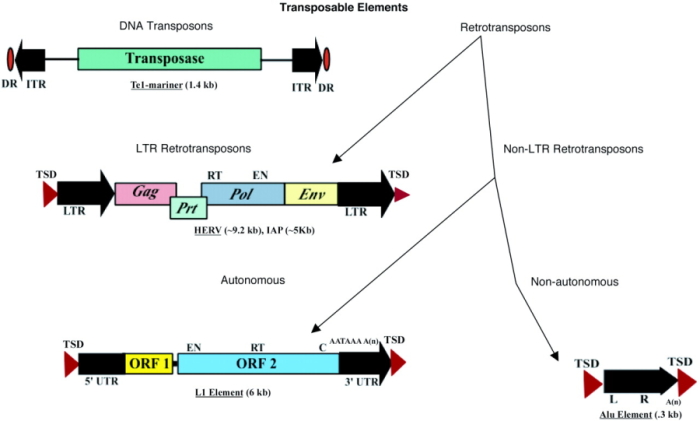
transposon [trans-poh-zon] Word Origin Genetics.
- a segment of DNA that is capable of inserting copies of itself into other DNA sites within the same cell.
Origin of transposon First recorded in 1974; transpos(ition) + -on1 British Dictionary definitions for transposon transposon noun
- genetics a genetic element that can move from one site in a chromosome to another site in the same or a different chromosome and thus alter the genetic constitution of the organism
Word Origin for transposon C20: from transpos (e) + -on transposon in Medicine transposon [trăns-pō′zŏn] n.
- A segment of DNA having a repeat of an insertion sequence element at each end as well as genes specific to some other activity such as resistance to antibiotics; it is capable of migrating to a new position within the same or another chromosome, plasmid, or cell and thereby transferring genetic properties.
transposon in Science transposon [trăns-pō′zŏn]
- A segment of DNA that is capable of independently replicating itself and inserting the copy into a new position within the same or another chromosome or plasmid. Transposons act somewhat similarly to viruses and in humans are an underlying cause of hemophilia, certain cancers, and other diseases. In other organisms, they can become a permanent and even beneficial part of the genome, as in maize corn, where transposons account for half the genome, and certain bacteria, where genes for antibiotic resistance can spread by means of transposons. Also called jumping gene
transposon in Culture transposon [(trans-poh-zon)]
Segments of DNA that shift from one area of a genome to another. Previously called jumping genes.
 Liberal Dictionary English Dictionary
Liberal Dictionary English Dictionary